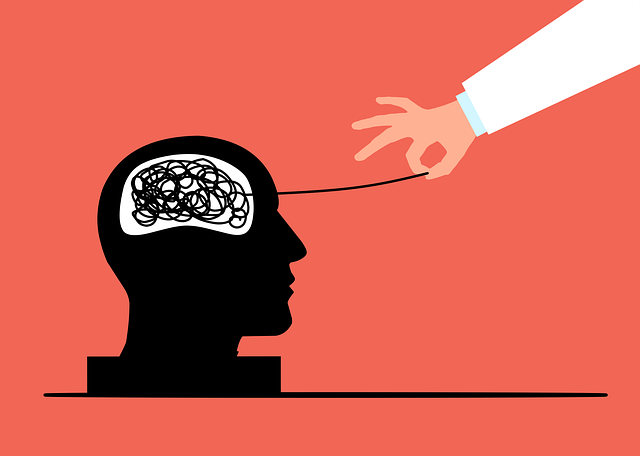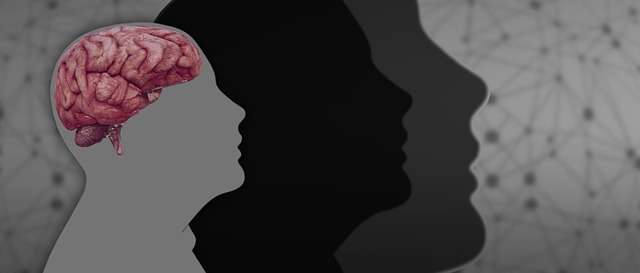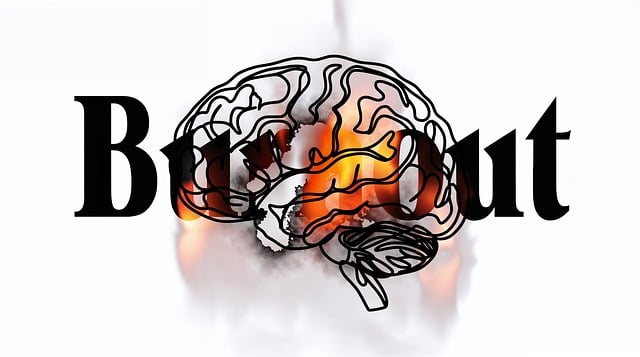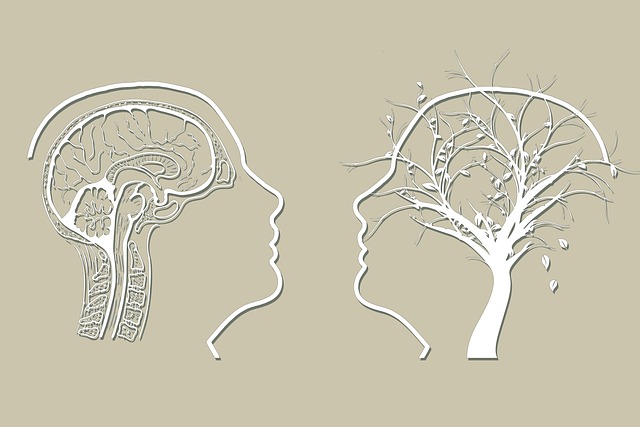In today's digital era, Castle Rock Neuro Disorders Therapy is revolutionizing mental wellness care with innovative e-therapy solutions. These include mobile apps and online platforms offering personalized, evidence-based treatments like Mind Over Matter principles, expanding access globally and catering to diverse populations, especially younger generations comfortable with digital sources. The groundbreaking CRNDT app leverages advanced algorithms and machine learning for tailored coping skills development programs, bridging traditional therapy with modern technology. Mental wellness apps, driven by increased internet access and demands for flexible solutions, are gaining popularity, featuring personalized sessions, mood tracking, mindfulness exercises, community support, educational content, and expert interviews. Future trends predict further integration of AI and expanded services, enhancing accessibility and effectiveness of mental health care worldwide.
In today’s digital age, mental wellness app development is transforming healthcare. Understanding mental health and its impact is crucial, especially with the rise of remote therapy. Castle Rock Neuro Disorders Therapy serves as a compelling case study, showcasing how digital solutions can revolutionize care delivery. This article explores key features for effective mental health apps, analyzing market trends and future prospects while incorporating SEO keywords like “Castle Rock Neuro Disorders Therapy” to highlight real-world applications.
- Understanding Mental Wellness and Its Impact
- The Role of Digital Therapy in Modern Healthcare
- Castle Rock Neuro Disorders Therapy: A Case Study
- Key Features for Effective Mental Health Apps
- Market Trends and Future Prospects for Wellness App Development
Understanding Mental Wellness and Its Impact

Understanding mental wellness is paramount in today’s fast-paced world, where stress and anxiety can significantly impact our overall well-being. Castle Rock Neuro Disorders Therapy highlights the growing importance of addressing mental health issues proactively. Mental wellness encompasses not just the absence of disorders like depression or anxiety but also emotional, psychological, and social wellbeing. It affects how we think, feel, and act in various aspects of life, from relationships to work performance.
Mental Health Policy Analysis and Advocacy plays a crucial role in shaping societal attitudes towards mental health, ensuring access to quality care through policies that promote Mood Management strategies. Additionally, Mental Wellness Journaling Exercises Guidance can empower individuals to take control of their mental state by providing tools for self-reflection and emotional regulation. By integrating these practices into daily routines, users can foster resilience, enhance coping mechanisms, and ultimately lead happier, more fulfilling lives.
The Role of Digital Therapy in Modern Healthcare

In today’s digital era, the integration of technology into healthcare has paved the way for innovative solutions in mental wellness, such as Castle Rock Neuro Disorders Therapy. Digital therapy, or e-therapy, plays a pivotal role in expanding access to care and personalizing treatment plans. Through mobile applications and online platforms, individuals can now benefit from evidence-based practices like Mind Over Matter principles tailored to their specific needs. This shift towards digital interventions is particularly beneficial for managing conditions that contribute to stress reduction methods, allowing users to engage in therapy from the comfort of their homes.
The impact of these digital tools extends beyond geographical boundaries, ensuring mental wellness services are more accessible and inclusive. By leveraging technology, professionals can reach a wider audience, offering support to those who might face barriers in attending traditional in-person sessions. This accessibility is crucial in addressing the growing demand for effective mental health solutions, particularly among younger generations who often embrace digital platforms as primary sources of information and support.
Castle Rock Neuro Disorders Therapy: A Case Study

Castle Rock Neuro Disorders Therapy (CRNDT) is a pioneering mental wellness app that has gained significant attention for its innovative approach to treating neuro disorders. This digital therapy platform offers personalized coping skills development programs tailored to individual needs, making it accessible to those seeking support for conditions like depression prevention and management.
The app’s success lies in its ability to bridge the gap between traditional therapy and modern technology. CRNDT utilizes advanced algorithms and machine learning to create dynamic, evidence-based interventions that adapt to users’ progress. By providing interactive tools and resources, it encourages active participation in one’s mental health journey. This case study highlights how digital solutions can revolutionize mental wellness by making specialized care more available and engaging, ultimately improving outcomes for those dealing with neuro disorders.
Key Features for Effective Mental Health Apps

In today’s digital age, mental wellness apps have emerged as powerful tools to support individuals navigating Castle Rock Neuro Disorders Therapy and Emotional Healing Processes. Effective apps go beyond mere stress reduction and incorporate a multifaceted approach to holistic mental health. Key features include personalized therapy sessions tailored to individual needs, incorporating Mind Over Matter Principles for users to cultivate resilience. Interactive tools such as mood tracking, mindfulness exercises, and meditation guides empower users to actively engage in their emotional well-being.
Moreover, successful apps often integrate communities and social support elements, fostering connections among users facing similar challenges. Regular updates with content like educational articles, expert interviews (even featuring Mental Wellness Podcast Series), and inspirational stories reinforce the app’s value over time. By seamlessly combining technology with therapeutic practices, these apps offer accessible and engaging pathways to enhancing mental wellness, catering to diverse user preferences and needs.
Market Trends and Future Prospects for Wellness App Development

The market for mental wellness apps is experiencing a significant surge, reflecting a growing awareness and demand for accessible therapeutic solutions. According to recent trends, users are increasingly turning to digital platforms for Castle Rock Neuro Disorders Therapy and other forms of mental health support. This shift is driven by factors such as improved internet accessibility, the desire for privacy, and the need for flexible, on-demand services that cater to modern lifestyles. The global wellness app market is projected to reach substantial value in the coming years, indicating a promising future for developers in this space.
Emerging trends suggest that future mental wellness apps will incorporate advanced technologies like artificial intelligence (AI) and machine learning to personalize treatment plans based on individual user needs. Additionally, there’s a growing emphasis on integrating Social Skills Training, Trauma Support Services, and even Mental Health Policy Analysis and Advocacy within these platforms to address diverse user challenges. These developments promise to enhance the accessibility and effectiveness of mental health care, making support more accessible than ever before.
Mental wellness app development is revolutionizing access to therapy, as evidenced by successful initiatives like Castle Rock Neuro Disorders Therapy. By leveraging digital platforms, these apps offer personalized support and accessibility that traditional healthcare models struggle to match. As market trends indicate a growing demand for mental health solutions, developers must prioritize key features such as user privacy, evidence-based practices, and seamless integration with existing care systems. With the right approach, wellness apps have the potential to significantly improve mental health outcomes on a global scale.










